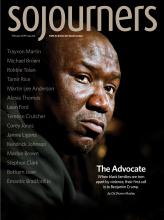SEXUAL ABUSE is not about sex: It’s about power.
At least that’s what Ona, the female protagonist of Miriam Toews’ novel Women Talking, insists in the aftermath of one of the most horrifying incidents of sexual abuse in recent history. Toews’ book is based on true events: Between 2005 and 2009, more than 100 Mennonite women and girls in a remote community in Bolivia were raped at night by what they believed were demons punishing them for their sins. These attacks were perpetrated by men in the community who used modified animal anesthetics to drug and rape the women in their own homes. The victims’ ages ranged from 3 to 65.
Toews’ novel is a fictional account of a conversation between eight of these women. As Toews’ story develops, the rapists are imprisoned, other men of the community have gone to bail them out, and the women—illiterate and unaware of what lies beyond the boundaries of their community—gather to decide between three courses of action: do nothing, stay and fight, or leave. As they debate, their dialogue is infused with theological discussions and surprisingly dark humor. These conversations give insight into the community’s culture, religiosity, and the ways that each woman copes with her personal grief.
Oddly, the voice of August Epp, the meeting’s minutes taker and the only man present, dominates Toews’ narrative. This story about women resisting a patriarchy gives an unexpected amount of attention to a man.
Read the Full Article

